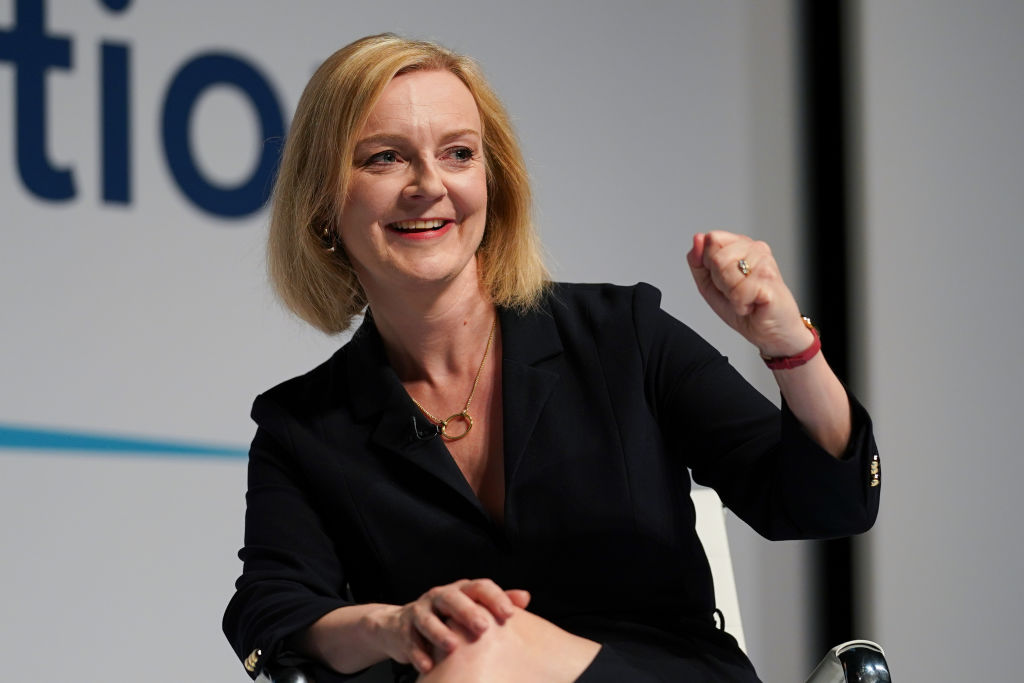The Thatcherite darling narrative needs to be an election-winning story

The battle for the leadership of the Conservative Party grinds on. Policy ideas are thrown out like bait from a fisherman, with Rishi Sunak declaring his support for grammar schools and Liz Truss throwing her weight behind allowing more seasonal workers into the UK. In the longer run, though, as the contest rolls towards a conclusion, it is not really a battle of ideas.
What will win the keys to Number 10 – and keep them at a general election – is a persuasive narrative. Boris Johnson’s enduring legacy will be his ability to tell a story so compelling he never needed real policy in order to win support.
We have already seen some sharp clashes over their “origin myths”: Sunak’s tale of the successful child of hard-working immigrant parents has been tarnished by perceptions of privilege in his public schooling; while Truss has portrayed herself as the offspring of leftist parents who took the knocks of a comprehensive education.
In fact they are not so far apart. Both read PPE at Oxford, Truss graduating from Merton College in 1996 and Sunak from Lincoln in 2001, each with a first-class degree. The facts can only be spun so far.
The main battleground is the current cost of living crisis. The each of the candidates will tackle it is in fact usefully emblematic of the narrative they are trying to sell more widely.
Liz Truss, despite her past life as a republican Liberal Democrat who voted to remain in the EU, has carved herself a niche as the candidate of the traditional right. She wants to shrink the state and cut taxes, and last week stressed that profit was not inherently a bad thing. She talks about Britain’s bright future and the benefits of free markets. This rolls into her approach to the cost of living. She is wary of a windfall tax because it is a smash-and-grab raid on private enterprise, and she sees growing the economy overall as the key to increasing individual prosperity.
Rishi Sunak did perhaps more to end Boris Johnson’s premiership than anyone except the prime minister himself when he resigned from the cabinet, triggering dozens of similar moves. Yet the former chancellor is, in subtle ways, portraying himself as the candidate of experience and prudence. He has dismissed instant tax cuts as irresponsible and believes that the national debt must be addressed. Above all he sees inflation as the great threat and will do nothing to exacerbate it: that, he says, is “common-sense Thatcherism”.
These contrasting narratives—Truss the true Thatcherite, hacking at a bloated state, and Sunak the sensible, keeping a wise hand on the economic tiller—are designed to win over the membership of the Conservative Party. The victor, however, will need to develop and refine their story if they want to take the party to another election win in 2023 or 2024. It is a formidable but not impossible task, made easier by a failure (so far) of the Labour Party and Sir Keir Starmer to tell a convincing tale of their own.
Boris Johnson, for his faults, proved a master of narrative in 2019. Facing Jeremy Corbyn in the general election, he managed to boil the contest down to three words—Get Brexit done—and positioned himself as the credible candidate to do that. It is unlikely that Truss or Sunak will be able to hone such a simple message, but the task remains the same.
The next prime minister must analyse and encapsulate the concerns of voters. The electorate is sharply divided, and creating a narrative which appeals across the country will be difficult. He or she must show credible plans to deal with the cost of living, energy prices and security and a public sector which is under extraordinary strain; at the same time, it will be necessary to offer a bold and imaginative picture of the UK’s place in the world after Brexit, and show some first steps towards a greater reimagining of what kind of country we are.
None of this is easy. All of it is vital. Whether Rishi Sunak or Liz Truss has their post forwarded to Downing Street as of next month, only a clear, robust and considered narrative for the future of the UK will convince a weary, jaded and alarmed electorate. But the new prime minister can’t say they weren’t warned.The Thatcherite darling narrative needs to be an election-winning story